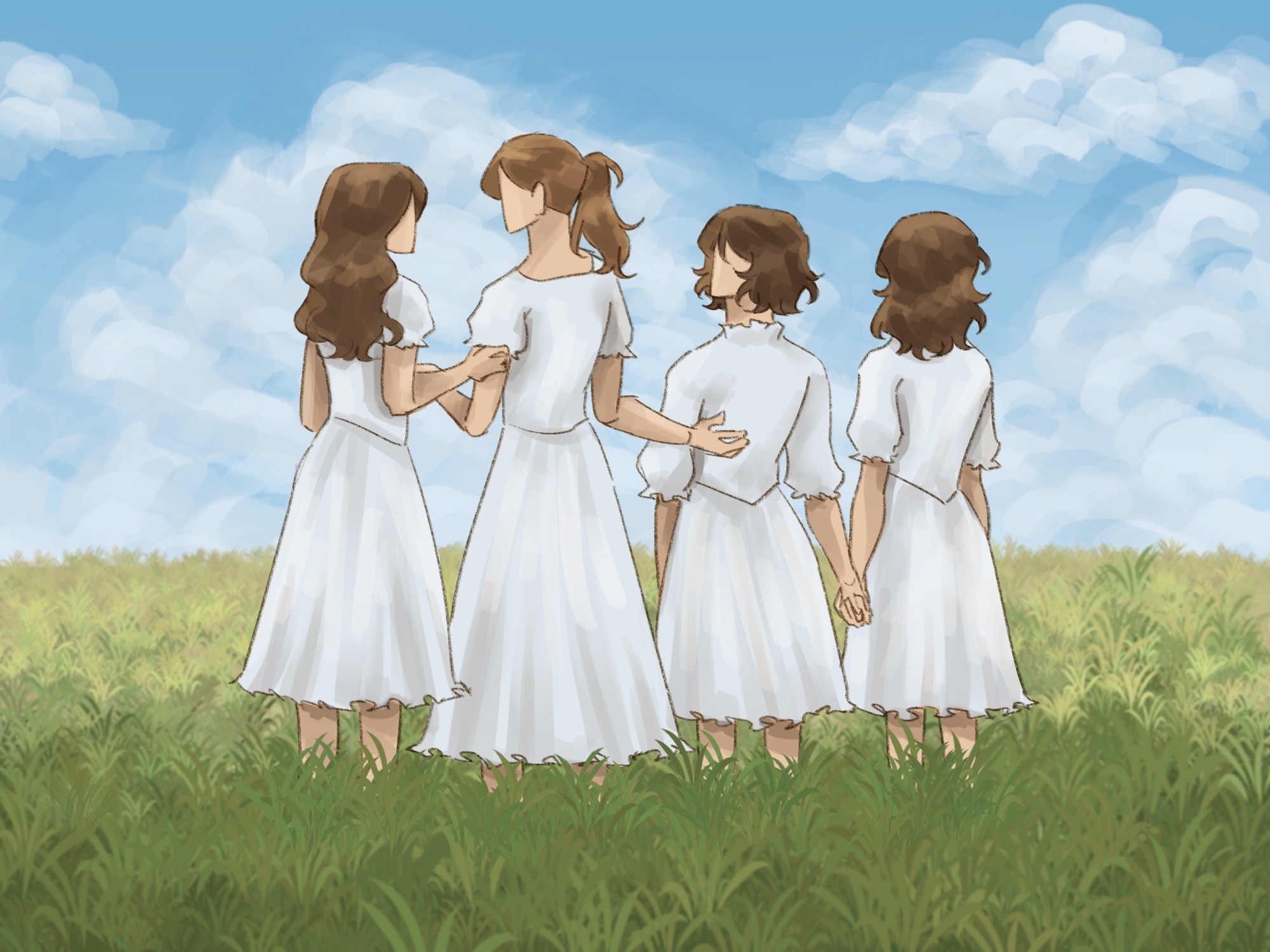Ann Napolitano’s novel, “Hello Beautiful,” is a modern homage to “Little Women” — and as a self-proclaimed Amy March, this book was irresistible.
Set in Chicago from the ‘60s to the early 2000s, “Hello Beautiful” tells the tale of the four Padavano sisters, inspired by the March girls in Louisa May Alcott’s classic novel.

While the novel is inspired in many ways by “Little Women,” Napolitano’s novel has a life of its own.
This generational family saga is driven by a deep sense of familial love as the sisters weave together to form a tight-knit bond — one that is tested by the strains of life and splintered relationships.
Readers meet Julia, Sylvie, and twins Cecelia and Emeline in their childhood home. It’s adorned with memorabilia of Catholic saints from their devout mother and filled with spoken prose and poetry from their idealistic father.
Written between the lines of her characters, Napolitano weaves traces of Jo, Meg, Amy, and Beth. Her characters even envision themselves as the March girls, declaring on a bad day: “I feel like Beth.”
But if you’re a fan of “Little Women,” I’m sure you’re wondering: where’s Laurie?
Well, much like how Laurie is drawn to the March sisters, when William Waters meets Julia, he is inextricably captivated by the Padavano family. Full of affection, belonging and comfort, the family provides much of what William lacked in his childhood.
William’s relationship with the Padavanos is complex. The tall, shy basketball player doesn’t necessarily fit in with the sisters’ strong personalities.
Despite that, the loveable William takes on many surrogate roles in the family: son, husband and brother. We see William grow from an observer of this unfamiliar family-centric lifestyle to an active participant in it.
William and the Padavano sisters take parallel roads: William learns how to live in a family, while the sisters learn how to live outside of one. His presence in their lives ultimately reshapes the Padavano family in unexpected ways — the implications of which I wish Napolitano explored more deeply.
“Hello Beautiful” is as much of a story of chosen family as it is given, as William and the sisters navigate marriage, divorce, love, loss and grief.
Napolitano paints familial bonds that serve as both a point of strength and tension for her characters. Looking through the lens of the Padavano sisters, the author explores the battle between familial loyalty and personal ambition.
The sisters have their own wants, needs and desires, which often conflict with each other.
Sylie’s slow-paced nature puts her directly at odds with Julia’s strong ambition. Cecelia’s artistic worldview challenges Emeline’s pragmatism. The difficulties of life strain their relationships, as they tend to do.
Napolitano builds a world where resentment and love coexist — where sisters drift apart and come back together. She shows how the passage of time inevitably changes family dynamics. She captures the complexity of sibling relationships and explores what it means to be bound by family— and by love.
It’s heart-wrenching and captivating.
But I’ll admit it, “Hello Beautiful” is a slow book.
If you’re looking for a page-turner that keeps you on the edge of your seat, don’t pick this book up. Moments can drag on, and the pacing leaves something to be desired.
But if you’re like me, drawn to character-driven literary fiction novels that delve into personal relationships and growth, you’ll find “Hello Beautiful” to be worth the read. The novel takes its time, but in turn, the moments of triumph and defeat are even more poignant.
The novel isn’t perfect though — four out of five stars.
Napolitano takes on a writing style that is simple yet effective. She beautifully depicts grief, not just of lost life, but of unspoken regrets and distant relationships. She will fully immerse you in the life of the Padavanos.
But some aspects of that life are underexplored.
While the novel certainly excels in its portrayal of sibling relationships, certain dynamics between William and the sisters leave much to be fleshed out. Despite William’s crucial importance to the arc of the novel, his emotional journey and backstory take the back burner to that of the sisters.
If “Hello Beautiful” had 100 more pages dedicated to those underdeveloped dynamics, it’d be a five-star read for me.
If you have sisters like I do, this book will absolutely make you cry. If you don’t have sisters, you’ll probably still cry, too.“Hello Beautiful” is emotional, and your heart will break alongside the Padavano sisters.
Whether or not you’re a fan of Little Women, this novel serves as a reminder of familial bonds and the power they hold. So allow this book or even just this review to serve as your reminder to call those you love.